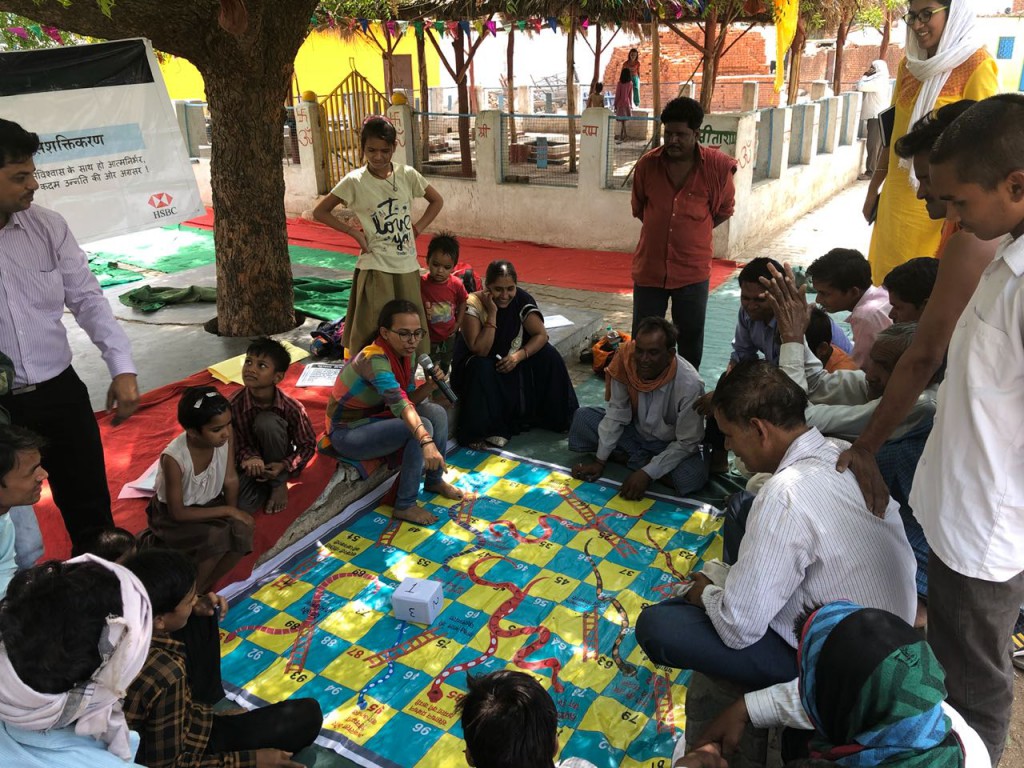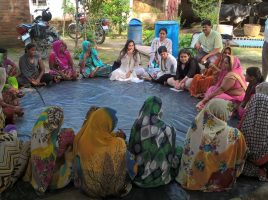Unleashing Entrepreneurial Energies …a step towards empowerment
The emerging Indian economy is characterised by un-paralleled dynamism owing to a new wave of technology and market transitions, as well as structural changes in the macro-economic environment. The ‘Entrepreneurship for Empowerment’ programme is conceptualised as a response to this dynamism — to enable vulnerable communities to adapt to these changes, and create a culture of entrepreneurship where access to information and opportunities is equitably available among all individuals.
Our belief in the instrumental role that micro enterprises play is strengthened with each interaction and every entrepreneurial story that is driven by the unique socio-cultural context it stems from — be it Uttar Pradesh, Uttarakhand or the National Capital Region (NCR). With the aim of rediscovering entrepreneurship, we have developed a design-driven research process of ‘persona’ building. This tool allows us to adapt our processes to match the specific needs represented by various entrepreneurs and their changing aspirations. These personas are then mapped onto a progression chart where the progression analysis will build our knowledge for effecting change and empowering an individual.
The project seems to be developing an identity for itself. In addition to being fluid and adaptive, it drives us to seek answers to some of the critical questions — to be disruptive. It aims to deconstruct the conventional approach to entrepreneurship, breaking myths associated with it, and building anew belief systemthat views entrepreneurship as empowering.
Interesting insights have emerged as the programme moves from infotainment, using information and entertainment as a means to spread awareness, to knowledge building. Modules have been adapted to each of the personas in their socio-economic context. For instance, for a literate woman of age 20-35, who is refrained from setting up an enterprise owing to the gender divide in the community, the programme is building approaches and new modules to address social constraints around her mobility and connectivity. The demand for transitioning from conventional to non-conventional enterprises has also been witnessed in the community. For instance, many aspiring entrepreneurs have shown keen interest in service-oriented entrepreneurship, such as e-governance, insurance and financial enterprises.
Moving forward, the programme sees each of these entrepreneurs as a potential innovator and agent of change. Our aim, therefore, will be to initiate catalytic change that unleashes entrepreneurship, empowering entrepreneurs with tools to create their own futures with their own hands.
Kanika Verma
kverma@devalt.org
The views expressed in the article are those of the author’s and not necessarily those of Development Alternatives.





Leave a Reply